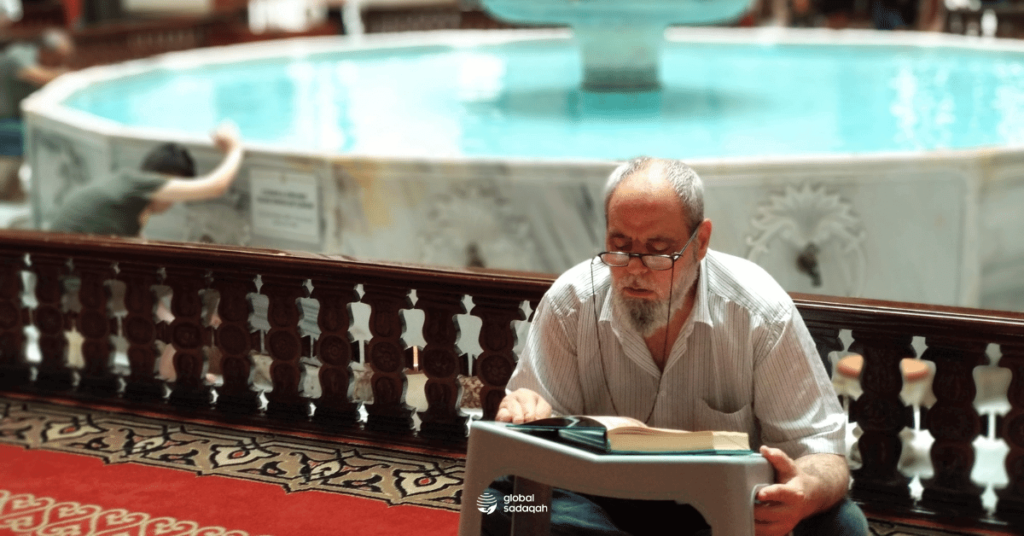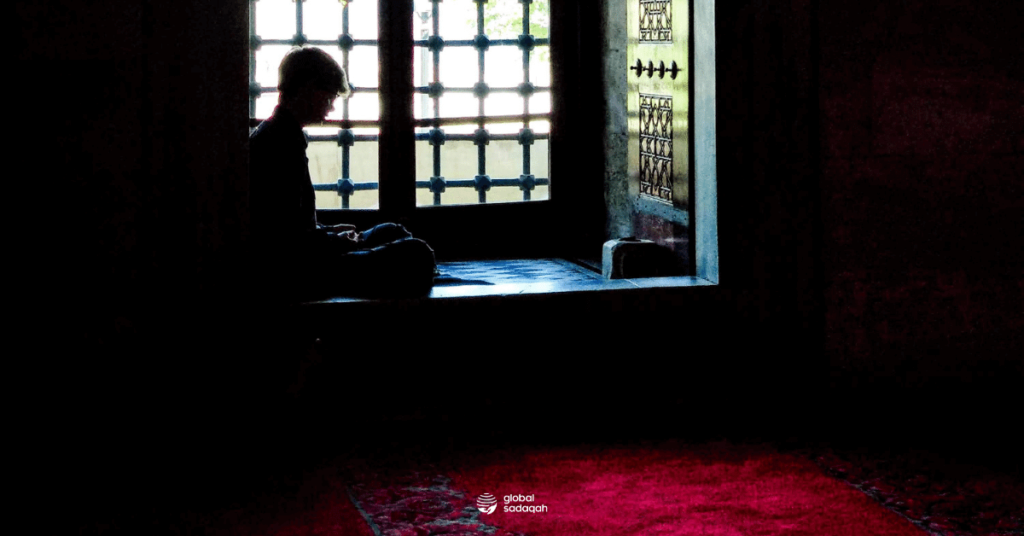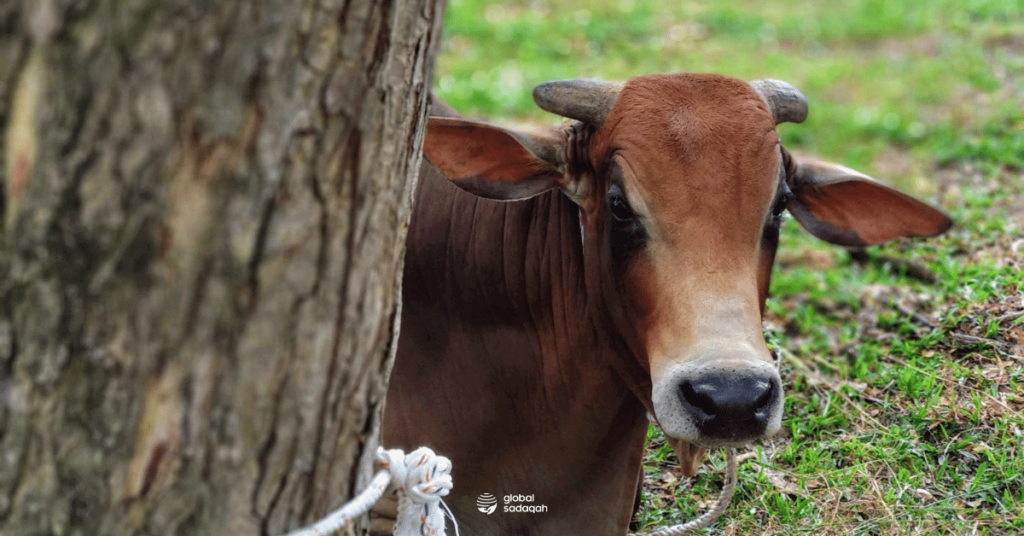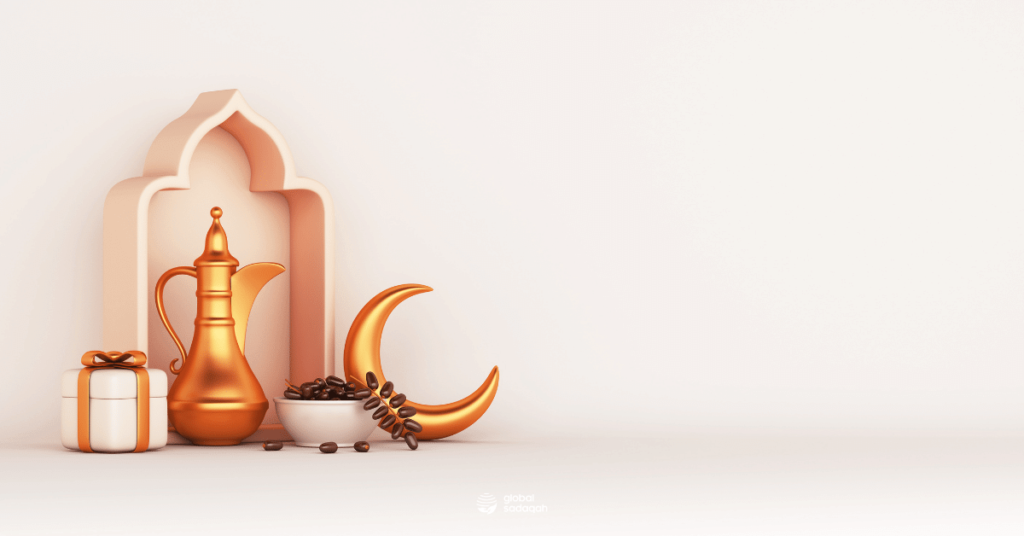Dhul Hijjah is the 12th month of the Islamic calendar. It means “month of the pilgrimage” in Arabic as Hajj, the fifth pillar of Islam, is performed from the 8th to the 10th day of this month. The first 10 days of Dhul Hijjah are known to be among the best days for Muslims to do righteous deeds for the sake of Allah. The Prophet ﷺ said, “There are no days on which righteous deeds are more beloved to Allah than these 10 days.” [Bukhari]. This year, the month of Dhul-Hijjah will begin on 29 June 2022.
Here are 10 deeds that you can perform in these blessed 10 days to gain the pleasure of Allah.
1) Fasting on the first nine days of Dhul Hijjah
It is one of the sunnahs of the Prophet ﷺ to fast on the first nine days of this month.
According to the Prophet ﷺ, fasting is one of the best acts of worship as Allah said, “All the deeds of the son of Adam are for him, except fasting, which is for Me and I shall reward (the fasting person) for it.” [Bukhari]
In case you were unable to fast on the earlier days of Dhul Hijjah, you can still fast on the 9th day – it’s the day of Arafah, and gain immense rewards. The Prophet ﷺ was asked about the observance of fasting on the day of Arafah. He said, “It is an expiation for the sins of the preceding year and the current year.” [Muslim]
However, it’s important to note that fasting on the 10th day of Dhul Hijjah (the day of Eid al-Adha) is haraam (forbidden). It’s one of the two days where fasting is prohibited in Islam, i.e. on Eid al-Fitr and Eid al-Adha.
2) Increasing daily salah (prayers)
Salah (prayers), the second pillar of Islam, is the pinnacle of the spiritual life of the believers. It’s the highest major form of divine worship in Islam. On these blessed days, it’s a great opportunity for Muslims to perfect and increase our daily practice of salah.
If you haven’t been praying the fardh (obligatory) prayers regularly, now is the time to start. If you have already been praying the fardh prayers, take this opportunity to start praying the sunnah and nawafil (voluntary) prayers.
You can also start building the habit of praying tahajjud (night prayer done in the last third portion of the night prayers) as you will be waking up for suhoor (pre-dawn meal) if you’re fasting on the first nine days.
3. Reciting the Quran

One of the best forms of worship is the recitation of the Quran. The Prophet ﷺ said, “The one who is proficient in the recitation of the Quran will be with the honourable and obedient scribes (angels) and he who recites the Quran and finds it difficult to recite, doing his best to recite it in the best way possible, will have a double reward.” [Bukhari & Muslim].
Try to build a habit of reciting the Quran daily in these 10 days so that you can carry on the habit for the rest of your life. Set up a schedule or attach the recitation to some other activity that you already do regularly. For example, you can set a goal to recite one page of the Quran after Fajr prayer. This way, you won’t have to constantly remind yourself to recite as you already have the habit of praying regularly. Start with small baby steps and build from there.
4) Doing dhikr (remembrance of Allah)
You can do dhikr virtually any time and while doing anything. The Prophet ﷺ said, “There are no days that are greater before Allah or in which good deeds are more beloved to Him than these 10ten days, so recite a great deal of tahleel, takbeer, and tahmeed during them.” [Ahmad]
Tahmeed is Alhamdulillah (All praises be to Allah)
Tahleel is Laa Ilaha illAllah (There is no deity worthy of worship but Allah)
Takbir is Allahu Akbar (Allah is great)
5) Giving sadaqah (charity)
One of the most significant benefits of sadaqah to its doers in the hereafter is that it expiates the doer’s sins like water extinguishes fire.
The Prophet ﷺ explained this in a hadith narrated by Ka’b bin Ujrah, “Salat is clear proof, and Sawm (fasting) is an impregnable shield, and Sadaqah (charity) extinguishes sins just as water extinguishes fire.” [Tirmidhi].
At GlobalSadaqah, we make your sadaqah experience simple, straightforward and rewarding while ensuring your donations reach those who are most in need.
Give sadaqah and help those in need around the globe via GlobalSadaqah today! May we be among those who enter Jannah through Baab as-Sadaqah.
Related: 11 Hadiths About Sadaqah
6) Making istighfar to seek for His forgiveness

As human beings, we are inevitably prone to sinning. It’s part of our human nature. Allah understands this, and so he said in the Quran, “And seek Allah’s forgiveness. Surely Allah is All-Forgiving, Most Merciful.” [Surah al-Baqarah: 199].
Make a lot of istighfar these 10 days of Dhul Hijjah by saying “Astaghfirullah” (I seek forgiveness of Allah). May Allah forgive us for our sins and guide us to the right path.
7) Getting in touch with our families and loved ones
Islam teaches us to, have a good relationship with our family for the sake of Allah. Maintaining the bonds of kinship is called silaturrahim in Arabic. Ar-Rahmaan and Ar-Raheem, two of the 99 names of Allah are derived from the same root word which signified mercy and compassion.
Abu Hurairah narrated that the Prophet ﷺ said, “Learn enough about your lineage to facilitate keeping your ties of kinship. For indeed keeping the ties of kinship encourages affection among the relatives, increases the wealth, and increases the lifespan.” [Tirmidhi]
So whenever you can, especially these 10 days of Dhul Hijjah, reach out to our family members, relatives and those we have ties with, and reconnect.
8) Letting go of our sins and bad habits
Allah loves those who quit their sins and bad habits for His sake. If you are looking for a new day or a special instance to get rid of your sins, bad habits, or addictions, make use of these 10 days of Dhul Hijjah.
Start small by overcoming a single bad habit, and then eventually build on the momentum to address the more difficult ones. In this way, we earn Allah’s pleasure by sacrificing our desires for His sake.
9) Performing the qurban

Qurban means “sacrifice” in Arabic. Every year on the day of Eid al-Adha, Muslims around the world slaughter an animal—a goat, sheep, cow, or camel—to reflect the Prophet Ibrahim’s willingness to sacrifice his son, Ismail, for the sake of God.
This Eid al-Adha, let’s join our hands in extending qurbani meat to the most vulnerable communities around the world. Offering qurban is sunnah muakkadah. It is a highly recommended act for those Muslims who could afford it.
The Prophet ﷺ said, “Whoever can afford it, but does not offer a sacrifice, let him not come near our prayer place.” [Sunan Ibn Majah]
Apart from fulfilling a religious obligation and reviving the sunnah, your qurban also means the world to those who are less privileged. Poverty-stricken families in poor countries look forward to Eid al-Adha all year long, as it is the only time that they get to enjoy a meal with meat. Poor children in Yemen, for example, are forced to eat leaves on a daily basis to survive. Spread smiles and bring food relief across the world by offering your qurban via our Global Qurban Campaign!
Some of our campaigns include:
Blessed Moments: Qurban for Poor Families in Makkah (Sheep)
Spreading Smiles In Eid: Qurban 2022 in Nigeria (Sheep/Ram)
Developing Strong Imams: Qurban 2022 in Malawi (Goat)
10) Celebrating Eid
Eid al-Adha is not just a celebration for Muslims but it commemorates the greatest divine sacrifice in history. In obedience and full submission to Allah, Prophet Ibrahim sacrificed his most beloved son, Prophet Ismail, whom he was only bestowed upon in his old age, after many years of longing for a child.
To his surprise, Allah had replaced the son with a ram as a qurban (sacrifice), and his son was left unharmed. It was such a divine miracle and a test from Allah to His beloved servant, in which Prophet Ibrahim had passed with flying colours.
Similar to Eid al-Fitri, there are sunnah acts that you can practise to celebrate this festival of sacrifice, including taking ghusl (bath) in the morning, putting on perfume and eating before going to the mosque to perform the sunnah Eid al-Adha prayer.
May Allah accept our good deeds and forgive our sins. Make qurban and bring food relief across the world by offering your qurban via our Global Qurban Campaign!

